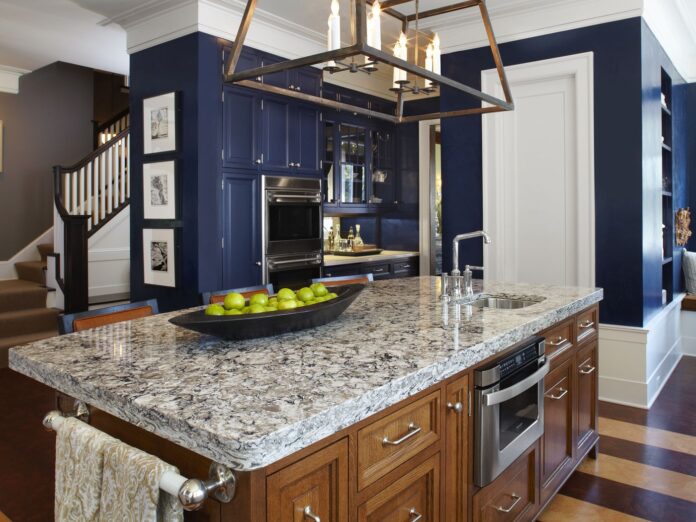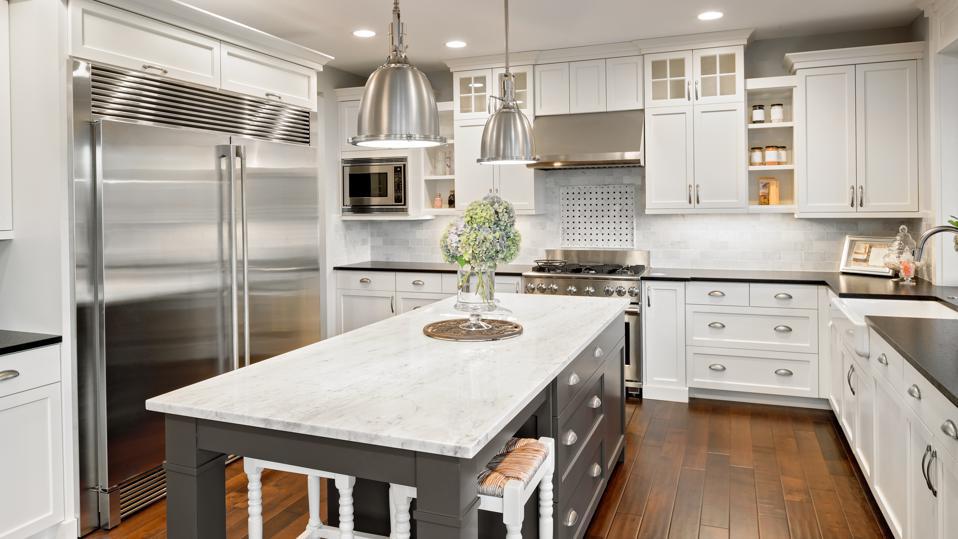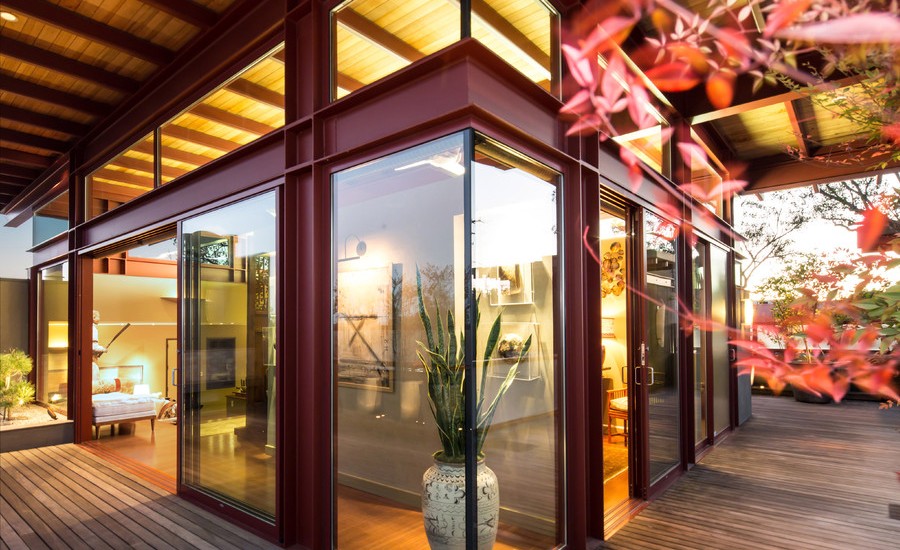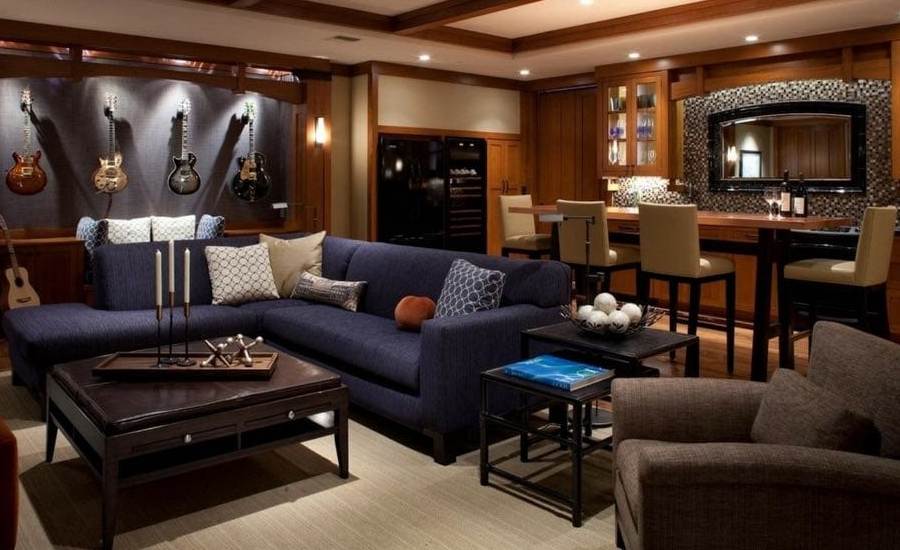Quartz is becoming a popular countertop material in recent years. And among other advantages, the material’s longevity, low maintenance, and ease of washing are likely to make quartz an even more popular option for kitchen designers and homeowners.
While most stone countertops are made up of natural stones such as granite countertops, quartz is a man-made material. Natural stone countertops are just pieces of stone cut from a giant slab of stone and then polished to perfection. However, it isn’t the case with quartz countertops. Instead, they are made very differently.
So, what are quartz countertops made of? How did engineered stone end up on our kitchen countertops?
In this article, find out what quartz countertops made of, along with its advantages and disadvantages:
Quartz countertops what are they made of?
Although certain manufacturers might have different ways to make quartz countertops, most manufacturers use the process given below:
To know more about quartz countertops, click here.
-
Raw materials are mixed together
The first and foremost thing is that the raw materials used in the making of quartz countertops are mixed in industrial-sized bowls. Quartz is made using 90% ground quartz – a natural mineral found in the earth. And the other 10% is polymers, pigments and resins.
The materials also depend on what the homeowner wishes its quartz countertop to look like. Moreover, certain stones and pigments can be used for the custom design.
Quartz countertops are available in a wide range of colours and designs, all of which may be tailored to match a space and its decor.
On the other hand, natural stone kitchen countertops have unchangeable natural veins and hues.
When the raw quartz elements are put together, they resemble wet sand. Then finally, the chemicals start to bind together, and the fabricators may go on to the next phase.
-
The mix goes into large mold
Next, the mix then goes into a large mould specially made to shape the raw materials into rectangular and flat slabs. This is the time when quartz takes its shape as a slab. The quartz will smooth out when it is put into the mould. This ensures that there are no gaps and is evenly distributed. Because the quartz slabs must be nonporous and airtight, the mixture must be correctly shaped.
-
The mould is compressed
The materials are compressed with a large machine to form quartz slabs when the mould is ready. Then, the tiny pieces of quartz resin and material are put together under enormous pressure so that they will become a large solid object-quartz slab.
Special techniques are utilized to ensure that the slab is airtight and nonporous. As the combination is crushed, industrial vacuums suck any air pockets from the quartz material, thus “squeezing all the air out.”
Additional techniques are utilized at this time to decrease air pockets in the engineered stone’s surface — vibrations assist in shaking off any loose stone and hardening the structure.
All of this work aims to make the quartz slab as firm and airtight as possible!
-
The quartz material is heated and dried.
Once the compression is finished, the quartz is dried and heated in the hot machines to solidify the quartz completely. This process ensures that the surface remains as smooth as possible.
When utilizing quartz for countertops, germs mustn’t have any air pockets to hide in, and liquids don’t have any small holes to seep into.
Because quartz is a man-made stone, more care may be taken to make it as functional as possible in the kitchen.
-
Final touches
After the slabs are heated and dried, the quartz is ready for its final touches. This is done by utilizing large machines to polish the slabs until they are shiny. A stone fabricator may evaluate the slab after the polishing process, and, if necessary, some hand-polishing is also done.
The slab is now ready to be trimmed to your desired size for your home. A specialist will come to your house to take precise measurements for your new kitchen counters. These measurements are delivered to the manufacturing floor, where skilled fabricators use sophisticated machines to cut the quartz countertops to the required dimensions.
Fabricators must account for sink basins and the many designs of countertop edges that homeowners may choose throughout the cutting process. After the quartz has been cut to its final shape, it is typically hand-polished and inspected once before being completed. And, now they are all set to give your kitchen a new, refreshing look!
So, this was all about what quartz countertops are made out of. Hopefully you enjoyed reading about the entire process.
Pros and cons of quartz countertops
Now you know what are quartz countertops made of, let’s get to know their advantages and disadvantages:
Pros
- Colour and design options: Quartz countertops come in a wide range of colours. The design options range from simple motifs to elaborate granite or marble imitations.
- Contemporary: Any modern kitchen can benefit from a crisp, clean appearance, whether in a rich colour or a subtle design.
- Carefree: The nonporous surface does not require any sealing or extra care. They look excellent with only a little cleaning.
- Durable: Quartz countertops are scratch-resistant and chip-resistant for a lifetime.
- Resale value: As their popularity has grown, so has their worth in buyer appeal when it comes time to sell your property.
Cons
- Professionally installed only: DIY installation is not recommended. Professional training and tools are required for the desired results.
- Manufactured product: Even though the quartz materials are 90% natural, the process of making them is man-made. They can be mimicked as natural stones, but they are not.
- Vulnerable to heat damage: The fillers and resins offering quartz durability can cause irreparable damage from hot pans.
Takeaway
Quartz is a man-made stone that was created especially for use in kitchen counters, and it has several characteristics that make it ideal for everyday cooking.
Quartz remains a popular choice for kitchen counters due to its durability, variety of design options, and natural stain resistance. While some people prefer the look or qualities of natural stone surfaces like granite, quartz remains a popular choice for kitchen counters due to its durability, variety of design options, and natural stain resistance.
We hope you find the appropriate countertop material for you, whether quartz, marble, or another stone!



















